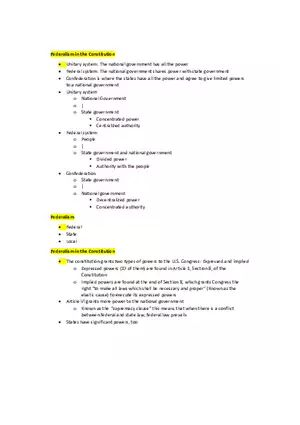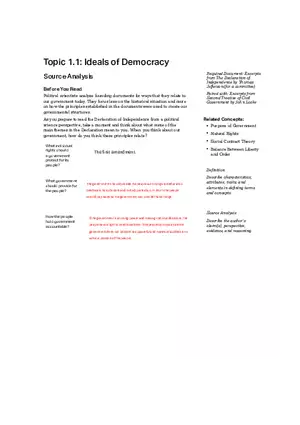Answer Key
American Government and Institutions - Political Parties
-
University:
California State University, Fresno -
Course:
PLSI 2 | American Government and Institutions Academic year:
2023
-
Views:
433
Pages:
1
Author:
socpleochroic
Related Documents
- Citizen’s Beliefs and Political Ideology Lecture Notes
- Constitution Scavenger Hunt Answer Key
- United States Government - Unit 2 Answer Key
- Federalism in the Constitution Notes
- American Government - Quiz The Presidency
- Introduction to American Government Chapter 3 Assignment Federalism
- Quiz 1 - American Government And Civic Engagement
- American Government Interest Groups
- Debate - Research Notes on Video
- Mimicking and Modifying An Experiment in Learning From
Report
Tell us what’s wrong with it:
Thanks, got it!
We will moderate it soon!
Report
Tell us what’s wrong with it:
Free up your schedule!
Our EduBirdie Experts Are Here for You 24/7! Just fill out a form and let us know how we can assist you.
Take 5 seconds to unlock
Enter your email below and get instant access to your document













